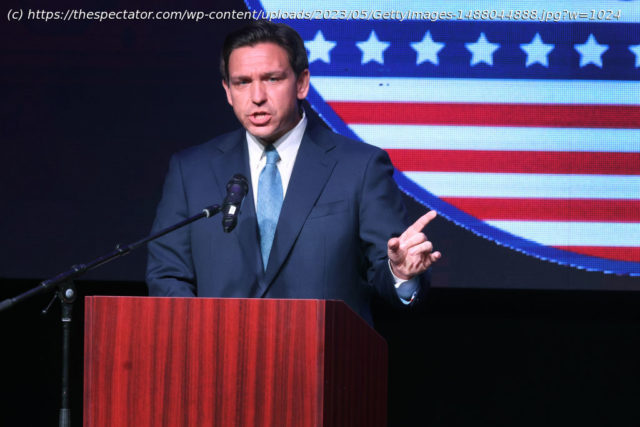DeSantis appeals to conservative critics of foreign entanglements with his sometimes skeptical remarks about US involvement in Ukraine
“Negative partisanship” is a notorious feature of American politics. In presidential elections especially, voters don’t vote for the party and candidate they like; they vote against the party and candidate they fear. This is one reason third-party politics is a waste of time. If voters want to prevent the worst outcome, they will always choose the most viable alternative over the best alternative.
For Joe Biden in 2020, it was enough that he wasn’t Donald Trump. For Trump in 2016, it was enough that he wasn’t Hillary Clinton. Next year, we’ll find out whether the voting public now views Biden as more like Clinton or still considers him better than Trump.
Perhaps it’s a grim comment on the state of America, but for all the obvious advantages presidential incumbency conveys, the public’s decision in 2024, like its verdict in 2020, may come down to what voters like least about the last four years.
When Trump was the incumbent, America was wracked by riots and ravaged by a pandemic. The economy that boomed until Trump’s final year was sunk by Covid. Biden promised, if not a fresh alternative, at least a return to relative placidity — no more mean tweets, no more endless Russiagate coverage. Anything was better than that.
“Anything,” however, has turned out to mean dizzying inflation and an escalating culture war, with shooting wars ending badly or beginning anew. Trump can draw a sharp contrast between the prosperity of his term and the price shocks of the Biden era, as well as between the winding-down of wars on his watch and Biden’s disgrace in Afghanistan and aimlessness in Ukraine.
But before Trump can test the hypothesis that serving as president has made Biden less popular, he has to see off a handful of rivals for the Republican nomination.






